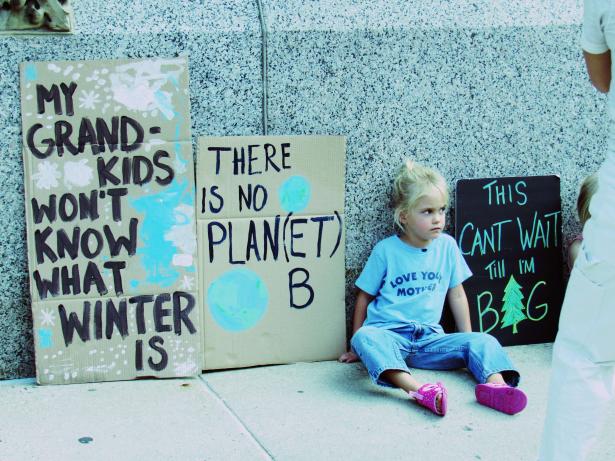We like to say that Earth Day was born in Wisconsin. After all, the idea to rally in support of environmental protection came from Wisconsin’s Junior Senator Gaylord Nelson in 1970. He may have been viewing oil spill devastation in California when the idea came to him, but we know it’s ours all the same—Wisconsin’s gift to the world.
But what have we done for the world lately? It can feel like political battle lines run so deep in Wisconsin they are impossible to cross — still, environmental victories are happening.
Last month Wisconsin passed a new electric vehicle charging law with bipartisan support — one that opens the door for our state to receive $78 million from the Biden administration to build a charging network. During a presidential election year, in a closely-watched purple state with a fiercely divided state government, we found common ground. Now convenience stores get to offer charging, and more charging will encourage more rapid adoption of clean, electric vehicles. Positive change brings more positive change.
We’ve also seen continued investments and expansions from state lawmakers in several farm conservation programs, broad bipartisan interest and action on managed grazing legislation, and newly enacted legislation and investment in pre-disaster flood resilience to help communities deal with extreme storms worsened by climate change.
And Wisconsin is seeing a rooftop solar boom thanks to Wisconsinites doing their part, with help from federal Inflation Reduction Act incentives making solar more affordable for businesses, non-profits and homeowners. Add to that recent Public Service Commission (PSC) approval of three new solar farms in Fond du Lac, Winnebago, Columbia and St. Croix counties, and suddenly clean energy in Wisconsin feels, well, energized.
Still, on this 55th Earth Day, we know protecting our environment is a never-ending battle, and the urgent issues facing Wisconsin right now matter more than ever. The state’s largest power company, WEC Energy Group, is currently seeking approval from the PSC to spend more than $1 billion on a major buildout of natural gas infrastructure, locking Wisconsin into 30 more years of fossil fuels at a time when we absolutely must transition to clean energy. The move comes as the company, which counts We Energies and WPS among its subsidiaries, continues to fight measures that would help its customers reduce demand and cut energy costs, like community solar and third party solar. In 2016, WEC also successfully lobbied to cut $7 million in funding from Wisconsin’s statewide efficiency program, Focus on Energy.
Canadian pipeline company Enbridge is waging a court battle to ensure it can continue to pump nearly 23 million gallons of crude oil and liquid natural gas every day from Superior, Wis. to refineries in Ontario across tribal land of the Bad River Band of Lake Superior Chippewa. Lake Superior is one of the most valuable natural resources in the world, but it is put at risk every single day Enbridge’s aging Line 5 oil pipeline remains in operation. Proposed construction of a new Line 5 pipeline that avoids tribal land also crosses some of Wisconsin’s most sensitive waterways and once again prolongs our dependence on fossil fuels at a time when the window for making meaningful progress against climate change is closing.
It’s becoming an unfortunate theme: complacency in the face of urgency.
It can be hard to keep up hope for a safe, healthy future in the face of powerful interests focused on keeping things the way they are. It helps to find inspiration in the unexpected victories. Last fall, a rare nest of endangered Rusty Patched bumblebee queens was discovered at a wooded park in Milwaukee County. Wisconsin’s native Rusty Patched bumblebee was the first bee listed as a federally endangered species in 2017.
For years, Rusty Patched worker bees were seldom seen in Wisconsin. The queens? Forget about it. Until people started paying attention — planting and protecting habitat, photographing, counting, seeking to understand how to protect the smallest creatures nobody had really bothered to protect before. Unexpected glimpses of progress show us what can be achieved by simply caring and acting.
We know our health depends on the health of our planet: on the air we breathe, the water we drink, the soil where we grow our food, the ecosystems that allow all living things to thrive. Clean Wisconsin, the state’s oldest environmental organization, founded on the first Earth Day in 1970. But for all of us, every day is Earth Day.
Amy Barrilleaux is Communication Director for Clean Wisconsin, where she works to engage the public and build a broad community of advocates by highlighting the connection between a clean environment and a safe, healthy future.
The Wisconsin Examiner is a nonpartisan, nonprofit news site offering a fresh perspective on politics and policy in our state. As the largest news bureau covering state government in Madison, the Examiner offers investigative reporting and daily coverage dedicated to the public interest. We take our inspiration from the motto emblazoned on a ceiling in our state Capitol: “The Will of the People Is the Law of the Land.” The Examiner is part of States Newsroom, the nation’s largest state-focused nonprofit news organization, supported by grants and donations. We retain full editorial independence.


Spread the word